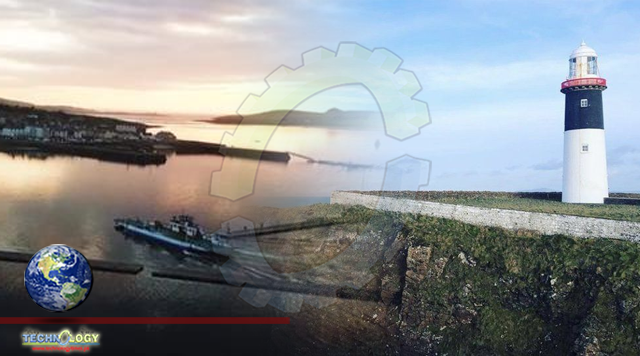The ambition is to become completely carbon neutral by the end of the decade, according to Michael Cecil from Rathlin’s Development and Community Association.

By Maria McCann
Rathlin Island was only connected to Northern Ireland’s main electricity grid in 2007.
Prior to that it was powered by unreliable wind turbines and old diesel generators.
Now islanders want to use the wind and waves that surround them to create their own green energy.
The ambition is to become completely carbon neutral by the end of the decade, according to Michael Cecil from Rathlin’s Development and Community Association.
“The island relies on its ferry service, home heating oil, diesel and petrol for transport on island and gas for cooking,” said Mr Cecil.
“All of those things produce carbon dioxide and other gases that pollute the atmosphere. We’re keen to remove as much, if not all of that, as possible”.
In cutting fossil fuel use, Mr Cecil said Rathlin wanted to lead as an example to others.
“If you look around us, you’ll see the beauty and the nature that surrounds us,” he said.
“Global warming and climate change all have impacts on that.
“The residents are keen to protect and enhance what’s here. If we can do our bit to reduce emissions and slow down climate change then we’re very keen to do that.”
The island is to get a community electric car and 20 e-bicycles in coming months, under a scheme backed by the Department for Infrastructure.
Researchers are also to carry out scoping studies on how else the island can become self-sustainable and green energy efficient.
Some possible options may be community-owned wind turbines, solar panels and hydrogen technologies.
But Mr Cecil and the community association knew its plans to become carbon neutral by 2030 are ambitious.
The two diesel ferries used to get to the island are responsible for a large proportion of its emissions.
John Begley is a project manager for The European Marine Energy Centre, which carries out research focusing on wave and tidal power development based in the Orkney Islands in Scotland.
He said there were a few different technologies that could help decarbonise the ferry.
“One is electrification where the ferry runs entirely on batteries charged by solar and wind overnight,” he said.
“Another technology we can use is hydrogen, which is growing.
“We’ve seen the deployment of hydrogen busses recently and local manufacturers are making these. The ferry technology isn’t much different, their engines are the same.”
Both Mr Begley and Mr Cecil acknowledged that while green energy technologies were being developed, other factors such as costs and planning may be bigger obstacles.
“There are issues around planning to try to get permission for some of the infrastructure,” Mr Begley said.
“However, whenever you have the applications coming from the local community and they are going to see the benefits of the technologies deployed, its not the biggest hurdle. The biggest one will be finance.
“These projects are very capital intensive. the money needs to be upfront and we need to see ways of funding those projects in the long term.
“There needs to be support from government to help the communities decarbonise. I think it’s essential that we see more groups like this popping up and taking the lead.
“It shows great leadership in the community to be able to be the first to try to do something to improve the climate”.
Originally published at Bbc